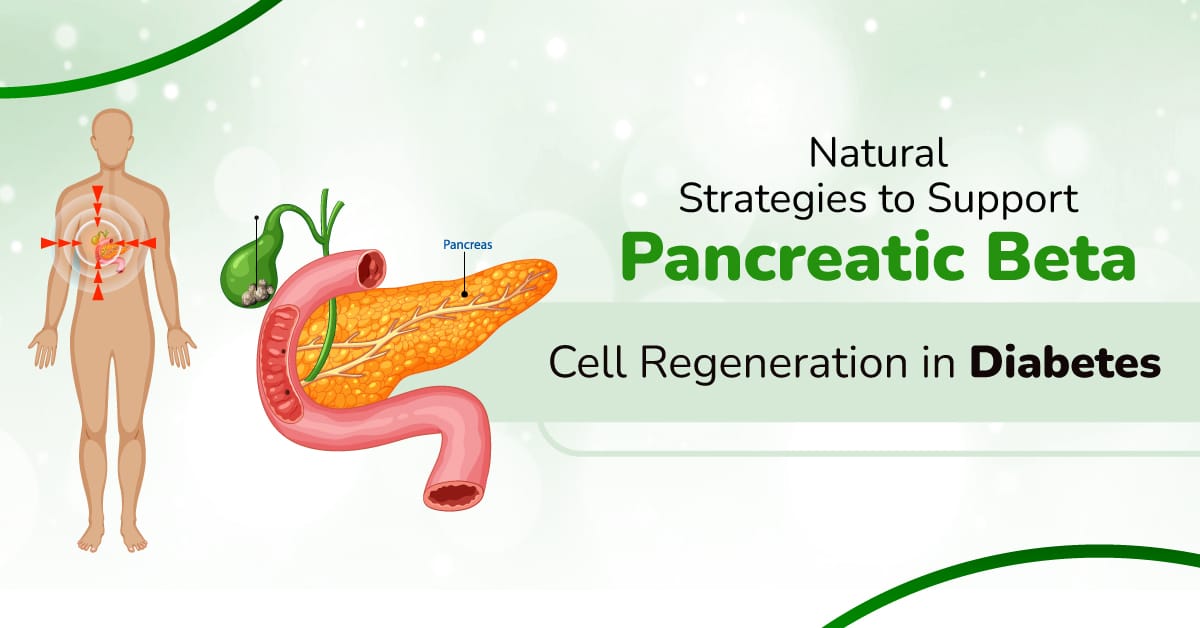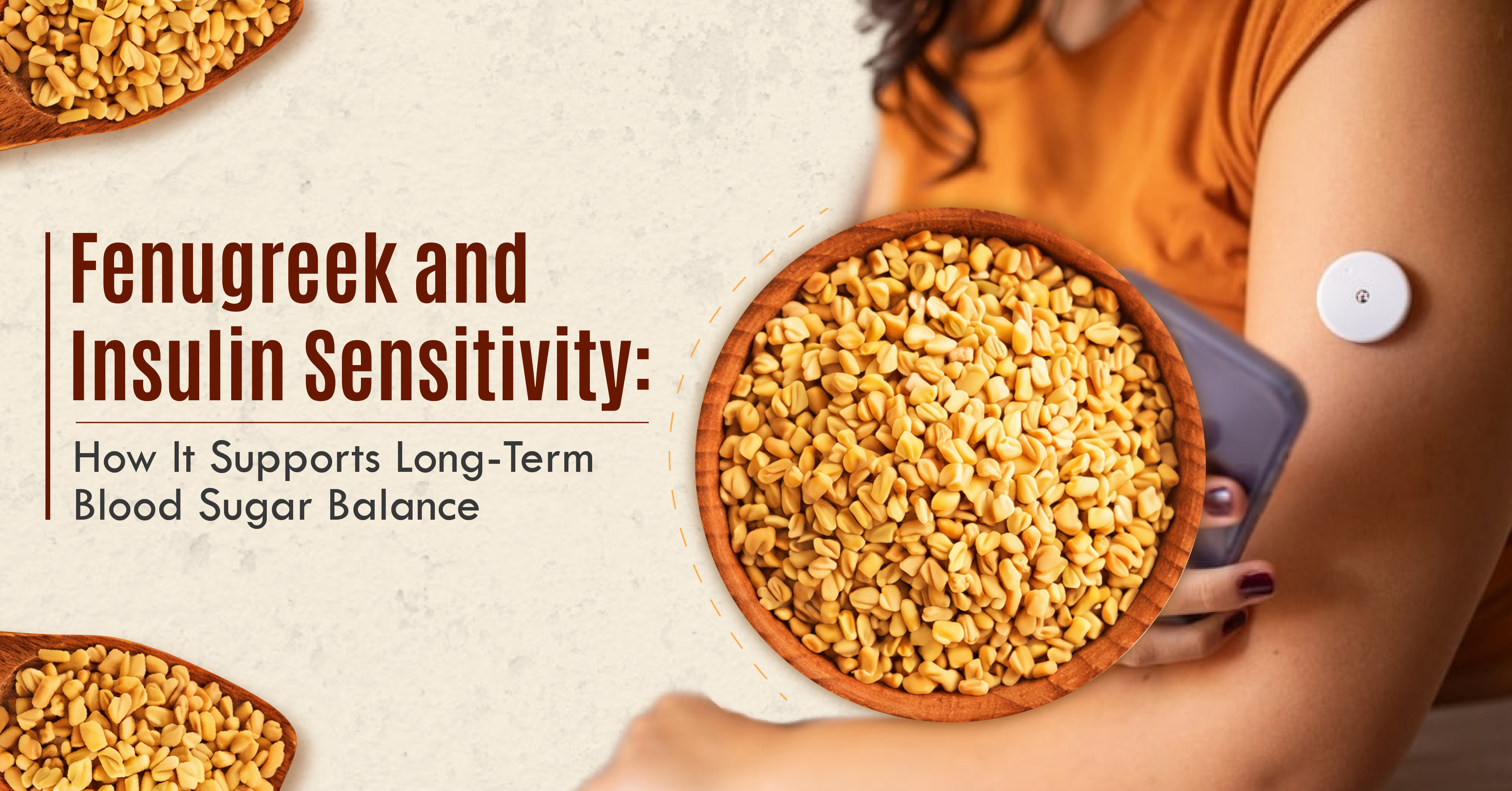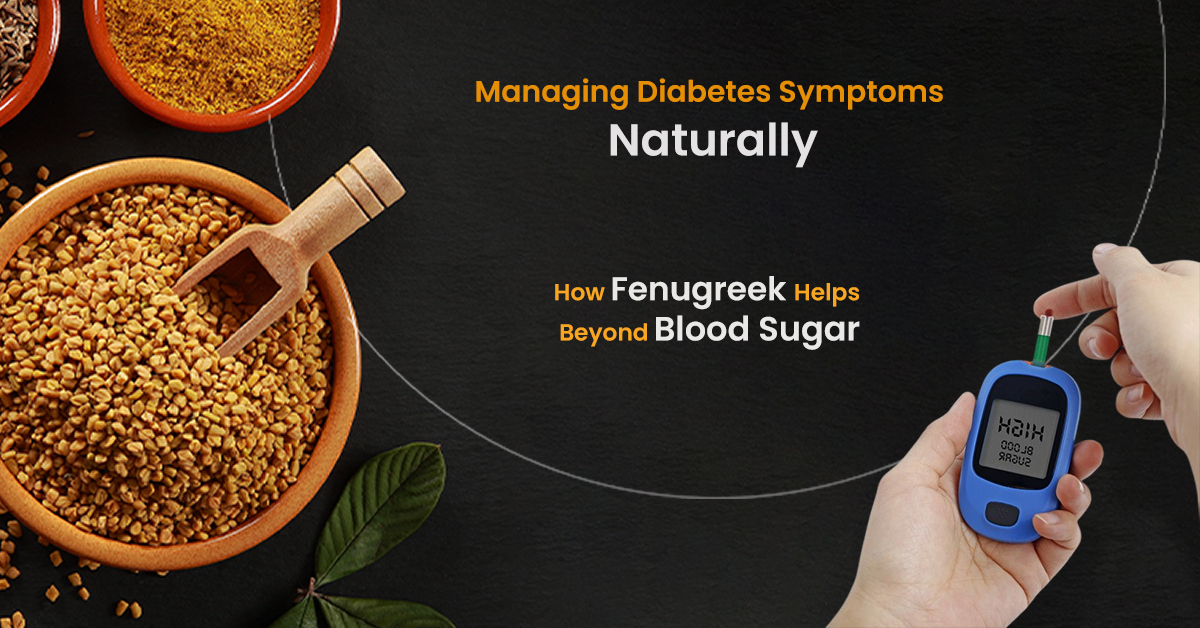Natural Strategies to Support Pancreatic Beta Cell Regeneration in Diabetes
30 Sep, 2025

Diabetes is a condition that affects millions of people worldwide. At its core, the problem lies in the pancreas-specifically the pancreatic beta cells. These cells produce insulin, the hormone responsible for regulating blood sugar levels. When these cells are damaged or not working properly, blood sugar levels rise and cause diabetes.
New research shows that pancreatic beta cells are not permanently lost in early diabetes and can regenerate under the right conditions. Supporting beta cell regeneration is therefore an important focus in natural diabetes management.
This blog explains simple lifestyle choices, dietary habits, and natural supplements that can help protect and regenerate these vital cells, improving insulin production and supporting healthier blood sugar balance.
What Are Pancreatic Beta Cells?
In the pancreas, the beta cells form clusters called islets of Langerhans. These specialized cells monitor blood sugar and release insulin when needed. Insulin acts like a key, opening cells so they can absorb sugar from the blood to use as energy.
In both type 1 and type 2 diabetes, beta cells are compromised-either destroyed by the immune system or impaired due to stress and inflammation. The loss of functional beta cells leads to decreased insulin production and poor blood sugar control.
Can Beta Cells Regenerate?
For many years, beta cell loss was thought to be irreversible. Today, scientists have discovered that beta cells can indeed regenerate, especially if the right conditions are created such as:
- Reducing metabolic stress and inflammation
- Improving blood sugar control
- Protecting cells from damage
- Providing nutrients and signals that promote cell growth
This means diabetes management should not only focus on lowering blood sugar but also on helping the pancreas heal and increase its insulin-producing capacity.
Lifestyle Habits to Support Beta Cell Health and Regeneration
1. Balanced Diet- Eating whole foods rich in antioxidants helps reduce inflammation and oxidative stress, both harmful to beta cells. Include colorful fruits, vegetables, nuts, whole grains, and lean proteins. Avoid processed sugars and high-fat foods that increase stress on the pancreas.
- Excess body fat makes insulin less effective and forces beta cells to overwork. Losing weight through a healthy diet and consistent exercise helps reduce this burden, allowing beta cells to recover.
- Exercise improves insulin sensitivity so that cells use insulin more effectively. This lowers blood sugar and reduces the workload on beta cells, promoting their survival and regeneration.
- Chronic stress increases inflammation and blood sugar levels, which harm beta cells. Techniques like meditation, deep breathing, and yoga help lower stress hormones and create a healthier environment for beta cells.
Foods and Nutrients That Promote Beta Cell Regeneration
Some natural foods and compounds are especially helpful for the pancreas:
- Fenugreek: Contains Trigonelline, a compound that supports insulin secretion and protects beta cells.
- Bitter Melon: Shown to improve pancreatic function and increase insulin levels.
- Cinnamon: Enhances insulin sensitivity and reduces blood glucose spikes.
- Turmeric: Curcumin in turmeric has anti-inflammatory and antioxidant effects that support beta cell health.
- Aloe Vera: Supports insulin production and pancreatic protection.
Including these foods regularly is a practical way to nourish your pancreas.
Herbal Supplements and Natural Extracts
Several herbal supplements have been studied for their potential to aid beta cell regeneration and improve blood sugar control:
- Fenugreek Extract: Supports beta cell function and lowers blood sugar naturally.
- Ginseng: Offers protective effects on beta cells and enhances insulin secretion.
- Gymnema Sylvestre: Known as “sugar destroyer,” this herb may help regenerate beta cells and improve insulin response.
- Bitter Melon Extract: Helps reduce blood sugar and supports pancreatic health.
These natural supplements can complement your diabetes care, but it’s important to consult your healthcare provider before starting any new supplement.
The Role of Antioxidants and Inflammation Control
Oxidative stress and chronic inflammation damage beta cells and worsen diabetes. Antioxidants neutralize harmful molecules called free radicals, reducing cell damage.
Eating antioxidant-rich foods and using anti-inflammatory herbs helps create a better environment for pancreatic healing and beta cell growth.
Emerging Research and Future Directions
Scientists are exploring techniques like stem cell therapy, gene editing, and regenerative drugs to replace or regenerate beta cells. While promising, these treatments need more research and are not widely available yet.
For now, combining healthy lifestyle choices, diet, and natural supplements remains the safest and most accessible approach to support beta cell regeneration.
Practical Tips for Beta Cell Support
- Eat plenty of fresh fruits and vegetables daily.
- Avoid sugar-heavy processed foods and sugary drinks.
- Make physical activity part of your daily routine.
- Practice stress-relief techniques regularly.
- Talk to your doctor about natural supplements that may help.
- Monitor your blood sugar levels consistently.
Conclusion
Pancreatic beta cells are essential for insulin production and blood sugar control. Though diabetes damages these cells, natural strategies offer hope for protecting and regenerating them.
A balanced diet, regular exercise, stress management, and targeted supplements can create an environment where beta cells can heal and grow. By taking these steps, you can enhance your body’s ability to manage diabetes more effectively and live a healthier life.




